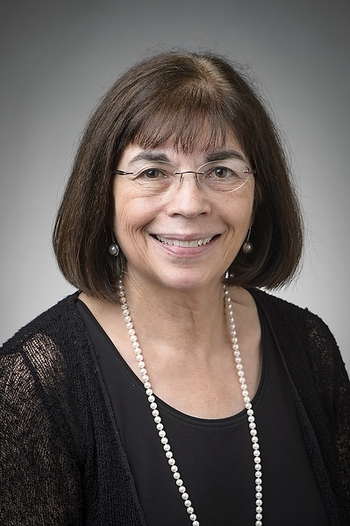Mailick to Lead UW-Madison Research, Graduate Education
Related: In a Q&A, Mailik talks about the challenges and opportunities the research enterprise faces during this time of transition and budgetary uncertainty.
Marsha Mailick, the former long-time director of the University of Wisconsin–Madison’s Waisman Center, was named today by Chancellor Rebecca Blank as the university’s first vice chancellor for research and graduate education.

Marsha Mailick has been named the first vice chancellor for research and graduate education at the University of Wisconsin–Madison
Mailick, an expert on autism and other developmental disabilities, joined the UW–Madison faculty in 1988 and directed the Waisman Center for 13 years, beginning in 2001. Since September, she has served as interim vice chancellor for research and graduate education, a role created in May of last year when the faculty senate approved a broad reorganization of the university’s programs of research and graduate education.
“Marsha Mailick is a tried and tested leader, and her knowledge of the complexities and nuances of our research and graduate education landscape promises to serve our institution very well,” says Blank. “We have a lot of challenges in front of us. Nationally and internationally, the research and graduate education environment is changing in dramatic ways, and we need inspired and creative leadership to ensure that UW–Madison remains one of the world’s great research universities. I am confident we are going to get that and more from Marsha.”
A veteran academic, Mailick has a decades-long history of campus service and leadership. After joining the UW–Madison School of Social Work and the Waisman Center from Boston University in 1988, Mailick became a prototypical UW–Madison professor, serving on numerous committees and advisory boards nationally and at the campus level while building an interdisciplinary research portfolio, one continuously funded by the National Institutes of Health for more than 25 years, and training and mentoring more than a score of graduate students and post-doctoral fellows. She has authored or co-authored more than 200 scholarly articles and book chapters as well half a dozen books and monographs. Much of her scholarship has focused on the behavioral phenotype of developmental disabilities during adolescence and adulthood, and the impact on parents and siblings.
In addition to her time directing the Waisman Center, a large multidisciplinary research center with a focus on developmental disabilities and neurodegenerative diseases, Mailick, who is also an affiliate of the department of pediatrics in the School of Medicine and Public Health, served as interim director of the Wisconsin Institute for Discovery. In 2008, she chaired the search for a new chancellor.
Mailick assumes a role in research leadership at a time of significant change. Shrinking budgets and a hypercompetitive national research environment are posing big challenges for institutions and faculty researchers alike.
“We have a lot of work to do to keep Wisconsin at the forefront of academic research nationally and internationally,” Mailick says. “But we have a great team in place and our faculty and staff can compete with anyone. The goal is to exceed our accomplishments of the past.”
The vice chancellor for research and graduate education is the university’s chief research officer, leading one of the largest and most diverse research programs in American higher education.
Mailick was selected from among four finalists for the job. Finalists were identified by a 17-member committee chaired by Animal Science Professor Mark Cook.
With a research portfolio spanning a broad range of disciplines and accounting for more than $1 billion in annual research expenditures, the most widely used measure of research activity, UW–Madison has a dynamic, complex research environment. The vice chancellor for research and graduate education oversees a more than $40 million annual funding program, 17 cross-campus research and service centers, research compliance for the campus and the Graduate School, which serves 9,400 graduate students in 150 master’s and 120 doctoral fields.
Mailick officially takes up her new role April 13, 2015.




